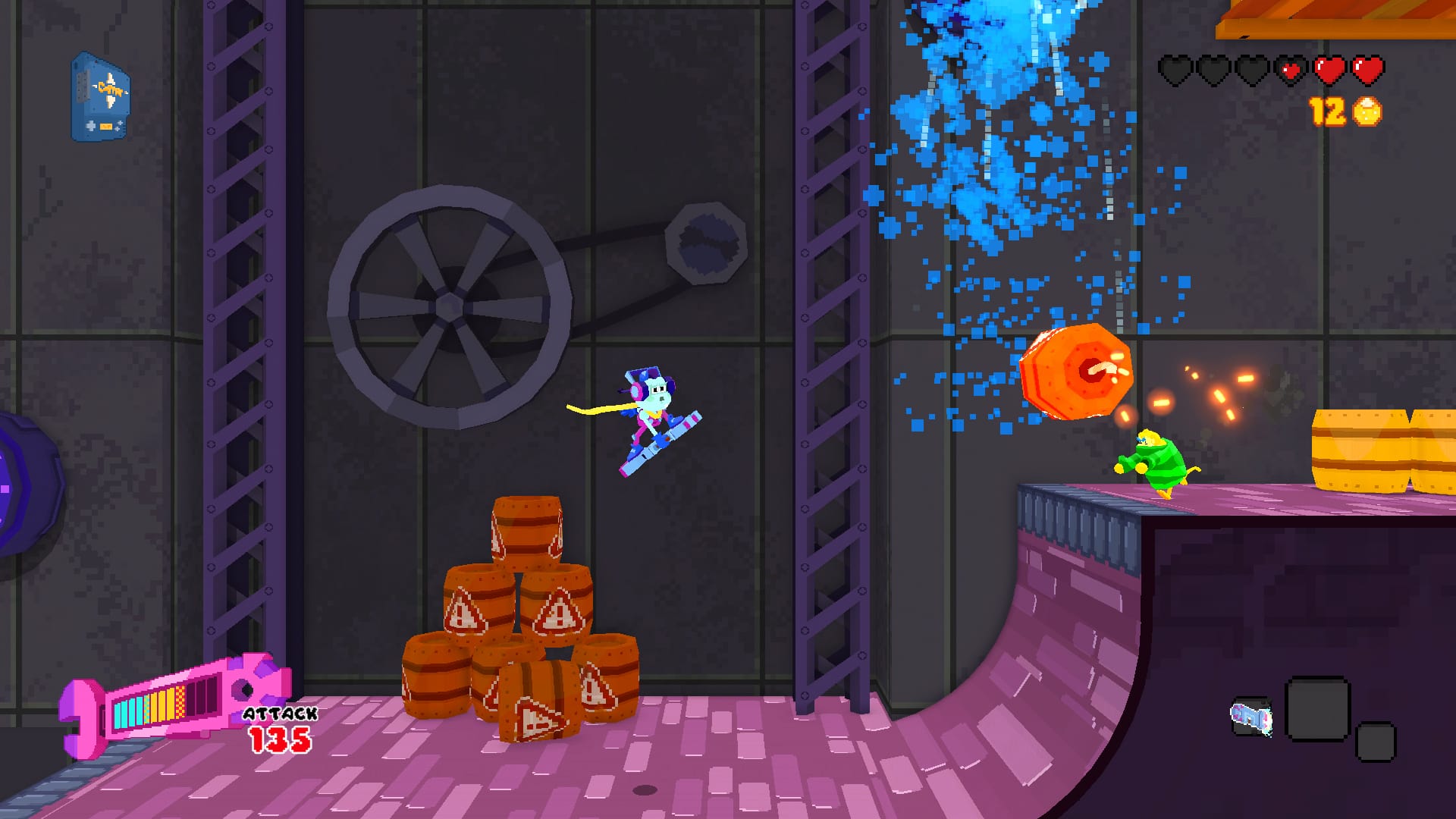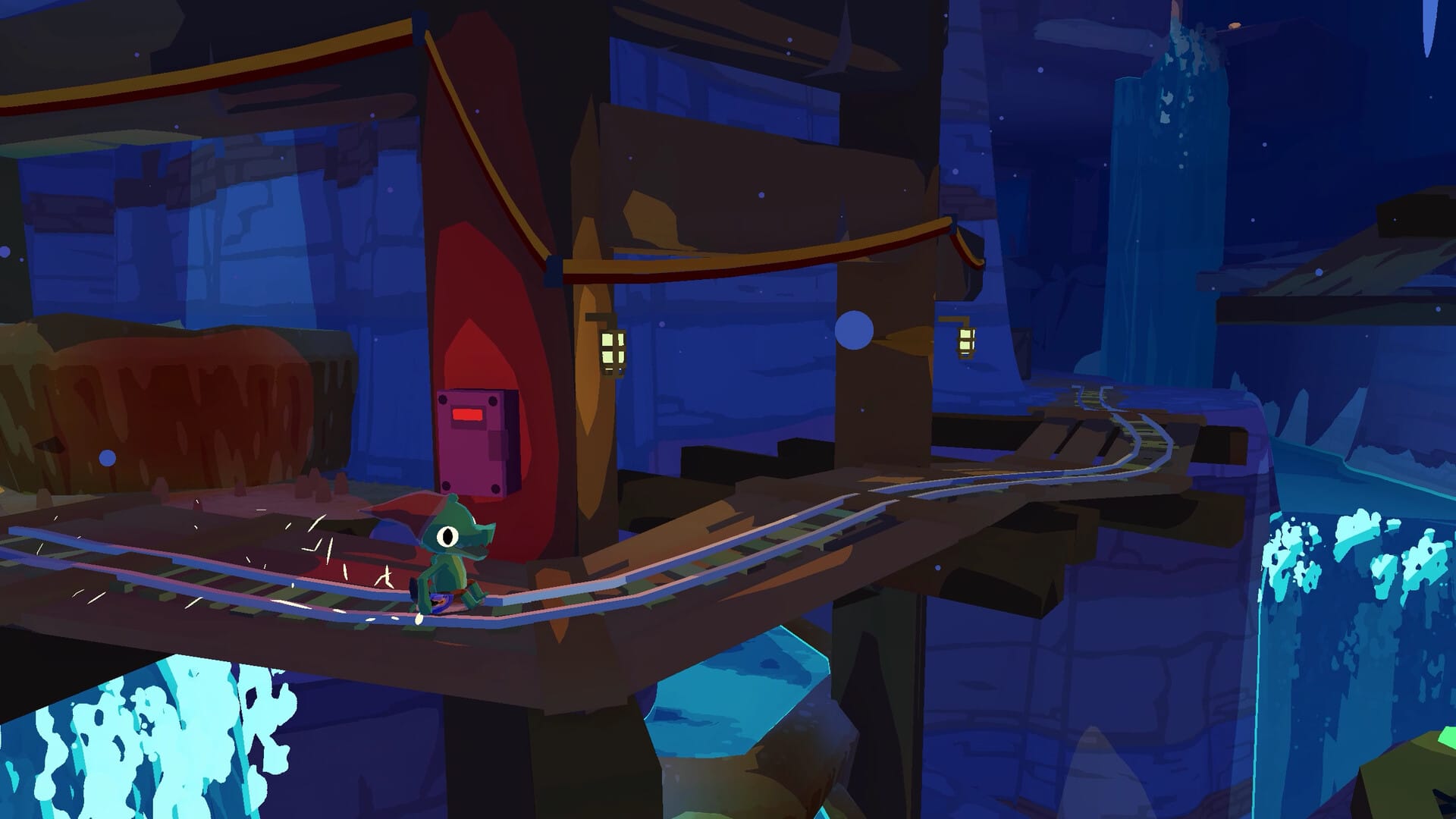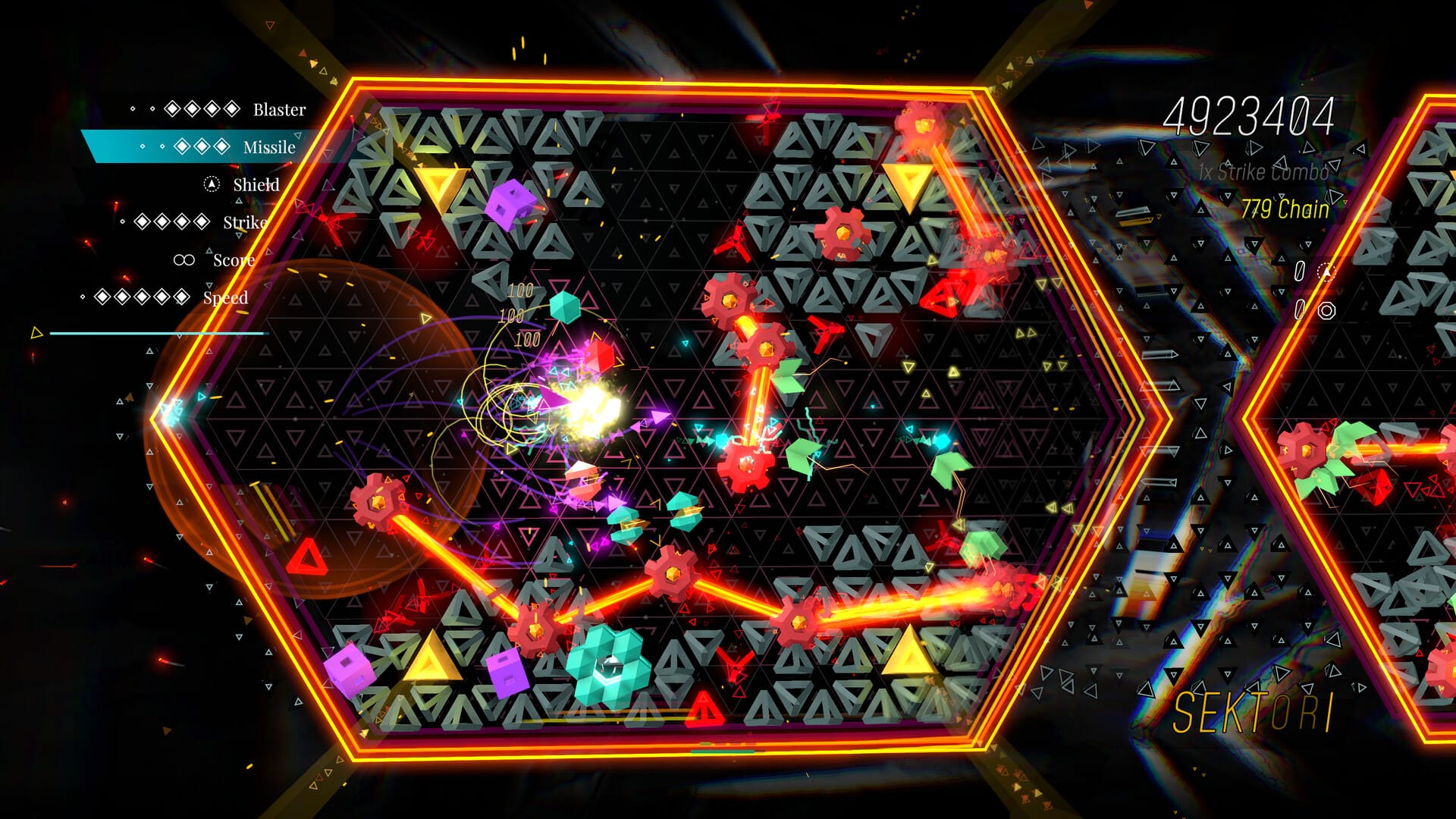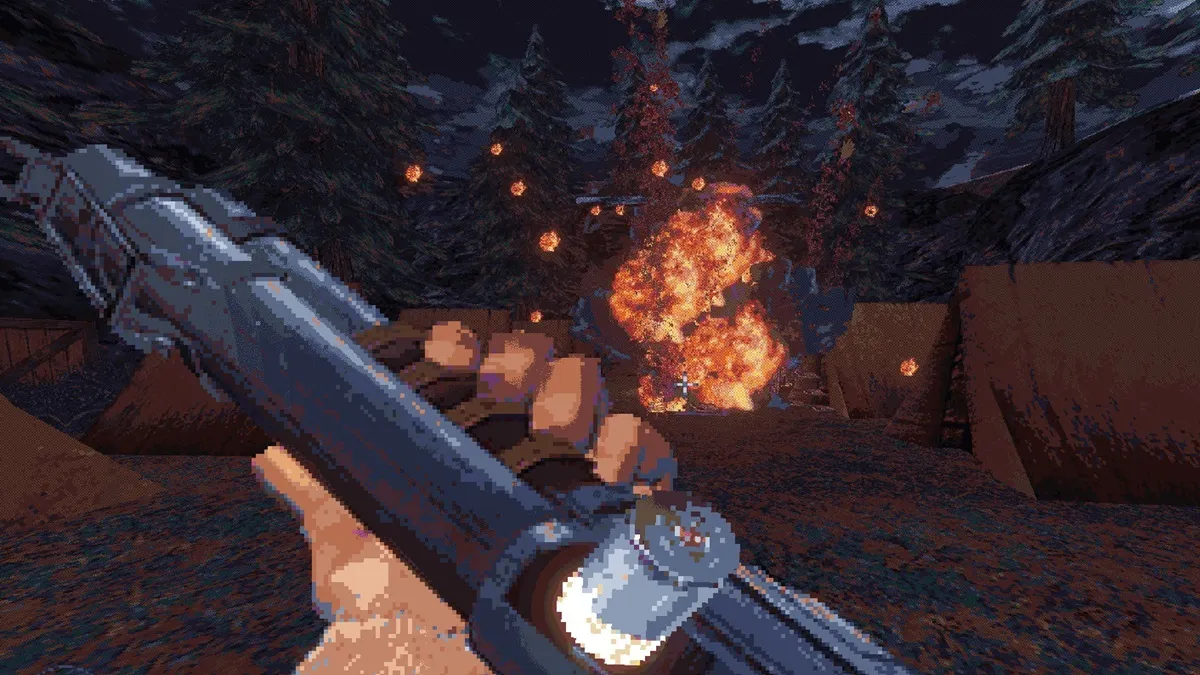It’s the end of the year, and you know that means: it’s time for Game of the Year! We decided to forego the usual route of side-wide awards, however, and instead simply post our own picks. Today, Callum stops by with his top ten list of games for the year. Why a top ten list? Because I — er, that is to say, “he” — says so! Take it away!
2013 was a strong year for games. Every sector of the video game landscape was well represented, from the big-name triple-A titles that drive the industry to the smaller indie projects that are becoming bigger and more influential by the day. So of course this made forming this list a huge challenge. No one game really stood out above the rest, unlike years prior where a clear choice for game of the year presented itself.
Because not everything I wanted to honor made the list (if it did, the thing would probably end up being a top 20 list or more), I’d like to mention just a few of the games that still left a big impression on me.
The Last of Us – Naughty Dog’s take on the post-apocalypse was dark and powerful. The opening and ending scenes especially are some of the strongest I’ve seen in a game. To think this came from a major developer is almost absurd given how risk-averse the triple-A game scene traditionally is.
Gunpoint – I played through this game in one sitting. The witty writing and supremely fun and inventive mechanics created a fantastically enjoyable game. That this is the very first project developer Tom Frances ever worked on only speaks to the guy’s talent. Bravo.
Race The Sun – Every time I needed something to play for a few minutes, Race The Sun was the game I always kept coming back to. It’s mindless enough to easily play whilst listening to podcasts while still engaging enough to keep the pressure on. That it’s levels change every day is a fun and clever hook as well, playing a major role in why I kept on coming back to it.
Gone Home – I love that we’ve gotten to a point where games like this can exist and succeed. That games have come so far that they can tell a such a simple, deeply personal story and do it marvelously. It’s disappointing that the discussion around it has shifted toward questioning its legitimacy as a game (for the record, it is), because it deserves better.
And now, without further ado, onto the list.
10. Fire Emblem: Awakening
Fire Emblem is essentially Nintendo’s answer to XCOM, which is really all that needs to be said on why it’s such a fantastic game. Seemingly simple to grasp mechanics quickly give way to absurd amounts of depth and complexity as you start plotting out who should be paired with whom to produce the best results in the field. The large cast of characters are also well-developed and written, making it easy to become invested in them, which only makes their potential loss in the heat of battle that much more impactful. (Assuming, of course, you don’t keep resetting the game every time one of your own units die [like me].)
9. Papers, Please
The greatest achievement of Papers, Please is in how it manages to make soul-crushingly boring, mundane work engaging. Checking passports hardly sounds like a great idea for a game, but somehow developer Lucas Pope was able to make it work. The stark, grim visuals and tone, along with the never-ending struggle of trying to provide for your family and stand up for your morals, even if it means breaking the rules or accepting a few bribes, set a compelling backdrop for this self-proclaimed dystopian document thriller. I hesitate to call it “fun” or “enjoyable,” because the game’s at its best when you’re at your most efficient – which also makes the game far more draining to play. It’s a careful balance that Papers, Please walks marvelously.
8. Metro: Last Light
The Last of Us no doubt made a bigger splash on the post-apocalyptic scene in games this year (and understandably so), but for me, Metro proved to the more memorable experience. Reason being that whenever I looked back on The Last of Us, it was the cutscenes that I remembered most, not any particular gameplay sequence. Whereas with Metro, it was nothing but gameplay I recalled.
The cold, dark tunnels of the Russian metro system were home to some of the most tense, terrifying sequences I’ve played in a game for a long time. Just thinking about crawling through the nests of those horrifying spider-scorpion hybrids still manages to make me shudder, let alone the hordes of the vaguely mole-like mutants that lie in the catacomb’s level. Christ, that was intense. Its use of the first-person perspective is what makes it all work, giving those crowded encounters a strong sense of claustrophobia. Having the maws of those horrid creatures right up in your face, covering the entirety of the screen is a quick and easy way to instill panic. Hell, just sneaking around compounds stocked with humans proved stressful.
Above all, though, it’s the profound sense of foreign design sensibilities that stands out most. Everything from the mere act of shooting to the very art design and setting feel far different from the usual crop of big-name, western-developed shooters. Metro has its own unique flair, which is why it continues to leave a strong impression on me.
7. The Swapper
Truly intelligent puzzle games are hard to come by, especially those with an intriguing story to back it up. The Swapper achieves both admirably. The use of clones create an array of cool, clever puzzles that challenge without ever leaving you utterly stumped as to what the hell you’re supposed to be doing. Every solution was always just within my grasp, even if it took me a long time to figure out the logistics behind them. Add an interesting story into the mix and a fantastically dark ending and The Swapper easily succeeds on all fronts.
6. MirrorMoon EP
Exploration remains one my absolute favorite parts of video games, and MirrorMoon EP revolves around that sole concept. Traversing the cosmos discovering new planets – even naming them, sometimes – hit all the right buttons. Its surreal soundtrack helped as well, perfectly invoking the sense of isolation one would no doubt feel while wandering space. Sure the planets don’t have much to ‘em, but there’s something pure about MirrorMoon EP that just speaks to me. It’s hard to explain.
5. Antichamber
More games need non-Euclidean spaces. One such place serves as the setting of Antichamber, a mind-bending puzzle game whose environment is as much a puzzle as the puzzles themselves. Wandering through the ever-shifting hallways of Antichamber is dizzying at first, but as you come to understand the rules and logic of this strange plane, it’s true genius begins to manifest, culminating in of the most inventive puzzle games in years.
4. Depression Quest
Before playing Depression Quest, my understanding of depression was tenuous at best. I never knew just how debilitating a condition it is. Based on my own experiences, I figured it was just a simple state of mind, something that one could easily pull themselves out of if they tried. But as I played Depression Quest, it became clear just how nerve-wracking depression can be, particularly since I could relate to much of the difficulties the game’s avatar grapples with (indecisiveness, difficulty getting out of bed in the morning, everyday tasks becoming seemingly insurmountable, etc.). It gave me a greater understanding of this horrid condition and empathy for those who suffer through it constantly.
Depression Quest was a revelatory experience. Rarely do games leave that strong an impact on me. It may be a simple browser-based text-adventure, but far as I’m concerned, that doesn’t diminish its incredible accomplishments in the slightest.
3. The Legend of Zelda: A Link Between Worlds
Count me among the skeptical when this game was announced. A sequel to one of the most revered Zelda games seemed like an obvious, cheap grab at cashing in on nostalgia. I expected it to be a good game (Nintendo is nothing if not consistent on delivering quality), but nothing ground-breaking. Then I got my hands on it and instantly fell in love.
A Link Between Worlds is easily the most progressive Zelda game in years. The return to the sort of open world and divorcing items from dungeons both made massive strides in revitalizing the gameplay of the series. They’re small alterations in the long run, sure, but their effects are massive. Being able to tackle dungeons in whatever order you please is awesome, as is being able to have practically full access to the entire world right from the start for a change. That it doesn’t treat you like you’ve never played a Zelda game before, either, really helps.
The best thing I can say about A Link Between Worlds above all, though, is that I’ve no idea what to expect next from the series. And that’s incredible, because the series has become all too predictable in recent years. That it’s finally willing to switch things up is a much needed step forward. (Review forthcoming.)
2. The Novelist
The Novelist is a game of self-reflection as much as it is a game about the choices and sacrifices we make to achieve our dreams. When I look back on the many choices I made for the Kaplan family, I don’t wonder how things could have played out differently, but rather what it says about me and what I would do if I were placed in a similar scenario in reality. Would I put family first? Or toss it all away in the pursuit of making my dream job a success?
It’s not uncommon for games to make me contemplate my actions, but so often they deal in fantasy or other extraordinary circumstances that it’s easy to distance myself from them. With The Novelist, however, I could easily see myself being in Dan’s (the titular novelist) position, which gave each choice incredible weight and impact. So much that it hurt to see the consequences of those choices play out. So that’s a first. Without a doubt one of the most profound games I’ve played this year. (Review forthcoming.)
1. Rayman Legends
Rayman Legends is a perfect example of just how unabashedly fun games can be. This game exudes delight out of every pore. From the colorful worlds and comical characters to the tightly-tuned platforming and exquisite rhythm levels, every facet of Rayman Legends never ceased to put a smile on my face. Helped that I played the whole game cooperatively as well, which led to all sorts of hilarious shenanigans that both aided and hindered our progress. (Seriously: if you haven’t played Rayman cooperatively yet, do so. It’s a blast.)
Even at its most difficult (I’m looking at you, invasion levels), it was still immensely enjoyable. Despite however angry it made me, I couldn’t stay mad at it because it just so good. All that on top of the sheer absurd amount of content available make Rayman Legends an easy choice for my personal game of the year. It’s a game I could easily keep on playing for months and months on end, if only to spend a little more time in its enchanting world.







